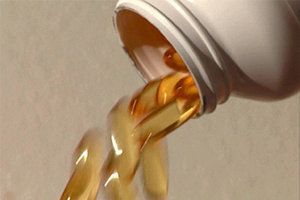It’s a new year and many chiropractors are evaluating what will enhance their respective practices, particularly as it relates to their bottom line. One of the most common questions I get is: “Do I need to be credentialed to bill insurance, and what are the best plans to join?” It’s a loaded question – but one every DC ponders. Whether you're already in-network or pondering whether to join, here's what you need to know.
DSHEA and Your Practice
The Dietary Supplement Health and Education Act (DSHEA) was enacted by Congress in 1994 in order to ensure quality and safety of dietary supplements in the marketplace. DSHEA defines how dietary supplements should be manufactured and gives the FDA the oversight to enforce cGMPs (current Good Manufacturing Practices). Most practitioners assume that since they are not in the business of manufacturing supplements, this law does not have much application within their practice, however, this is not the case. DSHEA is a very important piece of legislation for any healthcare practitioner who recommends and uses nutritional or herbal supplements with their patients.
When the FDA was first deciding how to regulate dietary supplements, they were faced with this first, fundamental question: are dietary supplements foods or drugs? They are usually naturally-derived or designed to mimic a compound found in nature (like foods); however, they are capsules and tablets found in little bottles on the shelf (like drugs). They can have safety concerns and side effects (like drugs), but are inherently more safe (like foods). Ultimately, the FDA decided that dietary supplements, including herbal medicines, vitamins, and food concentrates, should fall under the class of food. That being said, there are still strict guidelines for how these should be manufactured, marketed, and tracked for side effects.
Guidelines

With DSHEA, most dietary supplements do not require a pre-market approval by the FDA. This means that as long as a company is manufacturing a supplement that contains ingredients that have been around for a long time, they can go to market without submitting an application and safety studies for approval by the FDA. Pre-market approval is required for drugs, in contrast. For new ingredients, premarket approval is required to establish that compound is both naturally-derived and safe. The lack of pre-market approval for supplements is often criticized, mostly with the comment that "dietary supplements are unregulated." This is, of course, not the case. Anyone in the dietary supplement industry can attest to the fact that their entire business revolves around following the extensive rules set forth by the FDA. However, the same regulation required of drugs is not typically necessary, as these compounds have been around since the beginning of time, and have been consumed through the diet. Their safety profiles are much better than that of most drugs.
One important aspect of the decreased regulation that impacts your practice is that it allows for the variety of products available on the market, and also keeps costs affordable. One challenge in the drug industry is that so much research is required before a drug can come to market that in order for a company to be profitable, the drug's cost is exorbitant. In this circumstance, those studies are essential to ensure an unsafe drug doesn't hit the market and cause consumer harm (this is obviously not a perfect process, with Vioxx as a key example). If the same standard were (unnecessarily) held for each supplement, a multivitamin could cost hundreds of dollars and the ability of a company to afford to sell any supplements would be challenged. DSHEA ensures that consumers can access dietary supplements and that they are affordable means to support their health.
DSHEA also sets standards for how dietary supplements are manufactured. This is the largest and most important aspect to DSHEA. Quality in the dietary supplement industry used to be solely dictated by the company's desire to make a quality product. It costs money to source better materials, ensure good manufacturing practices, and ensure a clean, stable, product that contains what is stated on the label. DSHEA makes this all law. If you want to make products, you have to do it right. Thank goodness! This is one of the most valuable aspects of DSHEA from a practitioner's perspective, as we depend on high quality products that will help sick patients in the way we intend and not expose our patient to anything harmful like heavy metals or microbial contamination.
Standards
DSHEA sets a minimum standard that must be followed which controls the following aspects of manufacturing:
1. Control of Supply Chain: Most dietary supplement manufacturers don't actually make a product from scratch. They purchase several ingredients and mix them into unique, clinically-useful combinations. The toughest job for manufacturers is finding good quality ingredients. They need to validate the companies they partner with, test product to ensure it is good quality, and make sure that the ingredient will continue to be available for the long term. DSHEA sets guidelines around how you validate your ingredient suppliers, to make sure you are sourcing good ingredients.
2. Manufacturing: DSHEA sets guidelines both on what needs to be present in a manufacturing facility (think pest control, ensuring allergenic ingredients are separated, etc) as well as how manufacturing takes place. Guidelines include things like avoiding cross contamination and ensuring that processes are documented and followed. Each lot of each product needs to be tracked, and recorded, so that if there were ever a recall or other problem, product could be tracked and properly collected, and there would be documentation to find out where the problem occurred. Thankfully, these things occur rarely.
3. Labeling and marketing: DSHEA, along with Federal Trade Commission (FTC) guidelines, set the stage for how dietary supplements can be marketed. Dietary supplements cannot claim to prevent, diagnose, treat, or cure disease. They can only support normal function. Even if substantial research is present to show that probiotics can decrease your chance of catching a cold, you can't say that on a label. You can say that it promotes a healthy immune response. his last area is one of the most common citations when a company is doing something wrong. (As a note, if you tell a patient in a one-on-one situation that you are giving them turmeric to decrease inflammation and lower their pain, that is allowed. If you are selling supplements on your website and make the same claim, you can get in trouble.)
DSHEA sets guidelines about adverse event reporting. If your patient experiences a severe adverse event, the manufacturer is required by law to report that to the FDA. They are also required by law to have contact information available on their bottle so that this can be easily reported. As a healthcare provider, you can report for your patients, either to the manufacturer or to the FDA directly through their MedWatch process.

DSHEA sets the tone for quality in the dietary supplement industry. If you hear a company complain about having to follow cGMPs, I'd recommend running in the other direction and finding a new company to work with. These basic guidelines can be difficult to follow, but they are essential and provide protection to consumers.
You or someone you know may be selling a private label line of dietary supplements. If this is the case, DSHEA absolutely applies to your practice. Because if your name is on that bottle, you are considered the manufacturer in the eyes of the FDA and you are obliged to be cGMP compliant and follow the guidelines set forth in DSHEA. Be sure to talk to your contract manufacturer until you feel comfortable that they are cGMP compliant and that they can provide you with manufacturing documentation if needed.
DSHEA has provided a necessary level of control and quality in the dietary supplement industry and also ensures product is easy for the consumer to access. As a naturopathic doctor who relies on dietary supplements to support my patients' health, I am very grateful for its presence in our law books.



